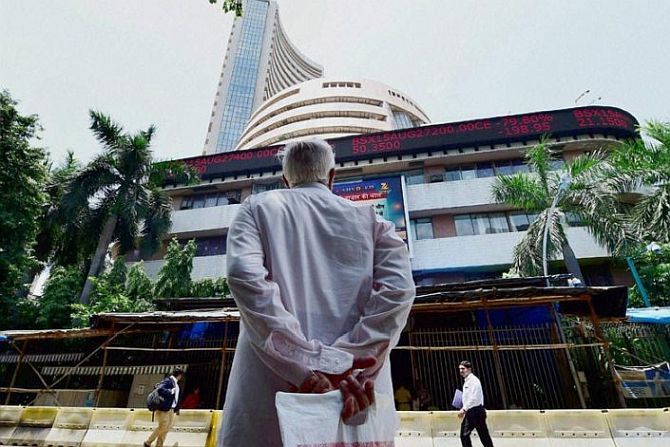In three of the past four years, 10-year returns have been 10 per cent or lower, making equity unattractive, compared to other asset classes.

Equity seems to be losing its charm as a preferred asset class, as investors raise questions on returns not compensating for the additional risk.
Even as the Nifty50 Total Returns Index, which considers dividend payouts, earned 9.35 per cent a year returns over the past 10 years, the post office fixed deposit or Public Provident Fund has given returns of 8-8.7 per cent with almost no risk.
Over three and five years, too, equities have fared badly.
According to the data from the World Gold Council, the compound annual growth rate (CAGR) of gold was 8.45 per cent during the same period.
The calculations are based on 12-month average prices in July 2010 and July this year.
The analysis is based on the 12-month average value of the Nifty50 Total Returns Index in July every year and the annualised returns for an investor with a portfolio that mirrors the index.
The entry and exit price are assumed to be the average value of Nifty50 during the 12 months ending July of the respective years.
This has been done to level market volatility and reduce its impact on long-term returns.
A similar exercise has been done for five years, where equity returns are just 7 per cent.
The data suggests that the 10-year rolling return has been on a downward course for nearly seven years after touching a record high of 20.3 per cent in July 2013.
This means the 2003-13 period was the best for long-term equity investors; returns have been falling since.
In three of the past four years, 10-year returns have been 10 per cent or lower, making equity unattractive, compared to other asset classes.
Not all experts are writing off equities yet.
U R Bhat, director, Dalton Capital Advisors, is against picking “arbitrary” start and end points to calculate returns in equity, given its dynamic nature.
“The base is very important while calculating returns in any asset. More so, in equities.
"It’s always tough to get superior returns if one starts at the peak of a bull run.
"It’s best to calculate returns from periods when the market was a screaming buy,” says Bhat.
Others say equity remains one of the best assets for long-term investors if they stop following the herd.
“In equities, it’s always about the buying and selling price.
"For example, annualised returns are 11-12 per cent for investors who got into the market in the lows of 2013.
"Similarly, there have been outsized returns for those who bought stocks at the bottom of the Lehman crisis or in March or April this year,” says Dhananjay Sinha, head of research and strategy, Systematix Institutional Equities.
Others, however, blame diminishing returns in equity on the macroeconomic shocks in the past decade and their adverse impact on corporate earnings.
“In the long term, stock prices ultimately reflect the underlying corporate performance.
"Corporate earnings growth has been hit badly in the past decade, with successive economic shocks, beginning with the European debt crisis in 2012, followed by the collapse in commodity prices in 2016 and now Covid-19,” says G Chokkalingam, founder and managing director, Equinomics Research & Advisory Services.
The Nifty underlying earnings per share (EPS), which tracks the combined net profit of the top 50 listed companies, has expanded at a CAGR of 4.7 per cent.
The excess returns over earnings growth has come from expansion in valuation, but analysts say there is a limit to how expensive the market can get.
The index is currently trading at 28.3x its underlying EPS in the trailing 12 months, up from 22x in 2010 and 23x five years ago.
Photograph: PTI Photo












 © 2025
© 2025